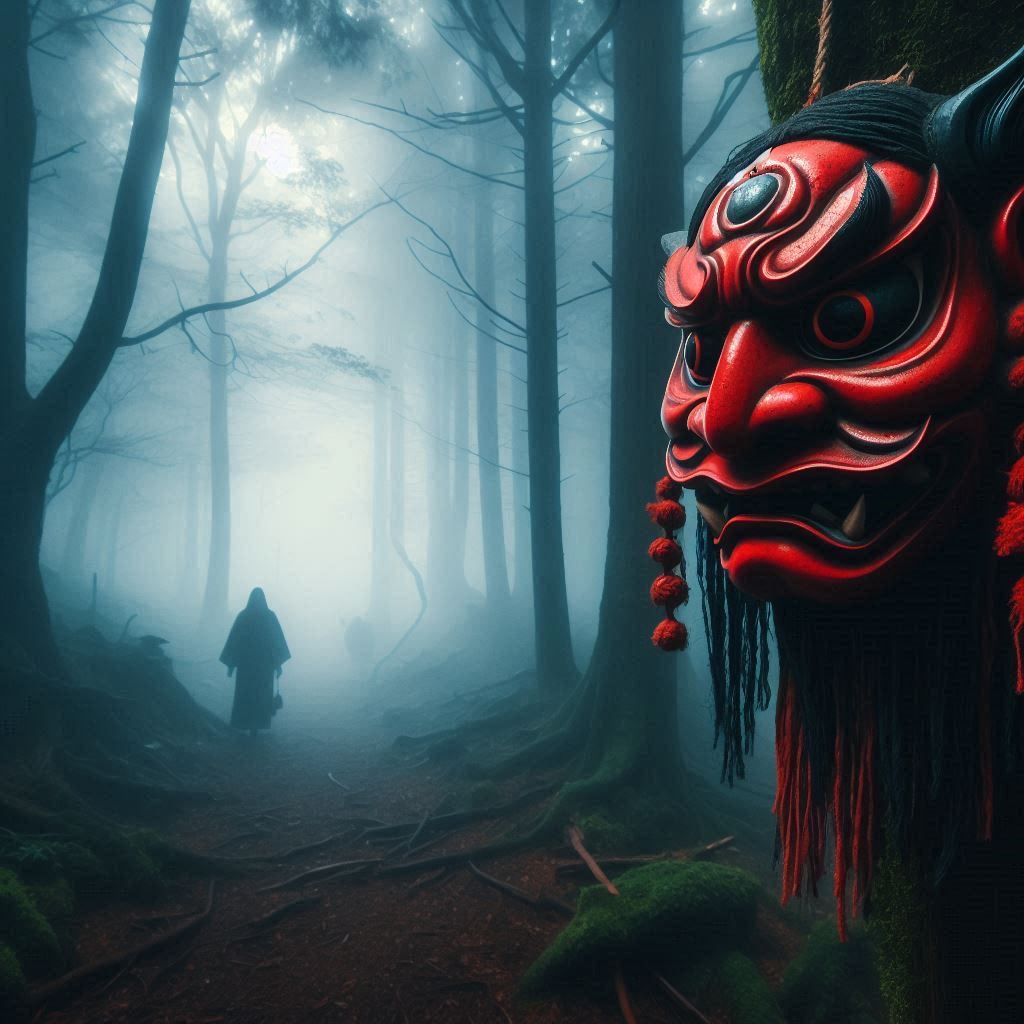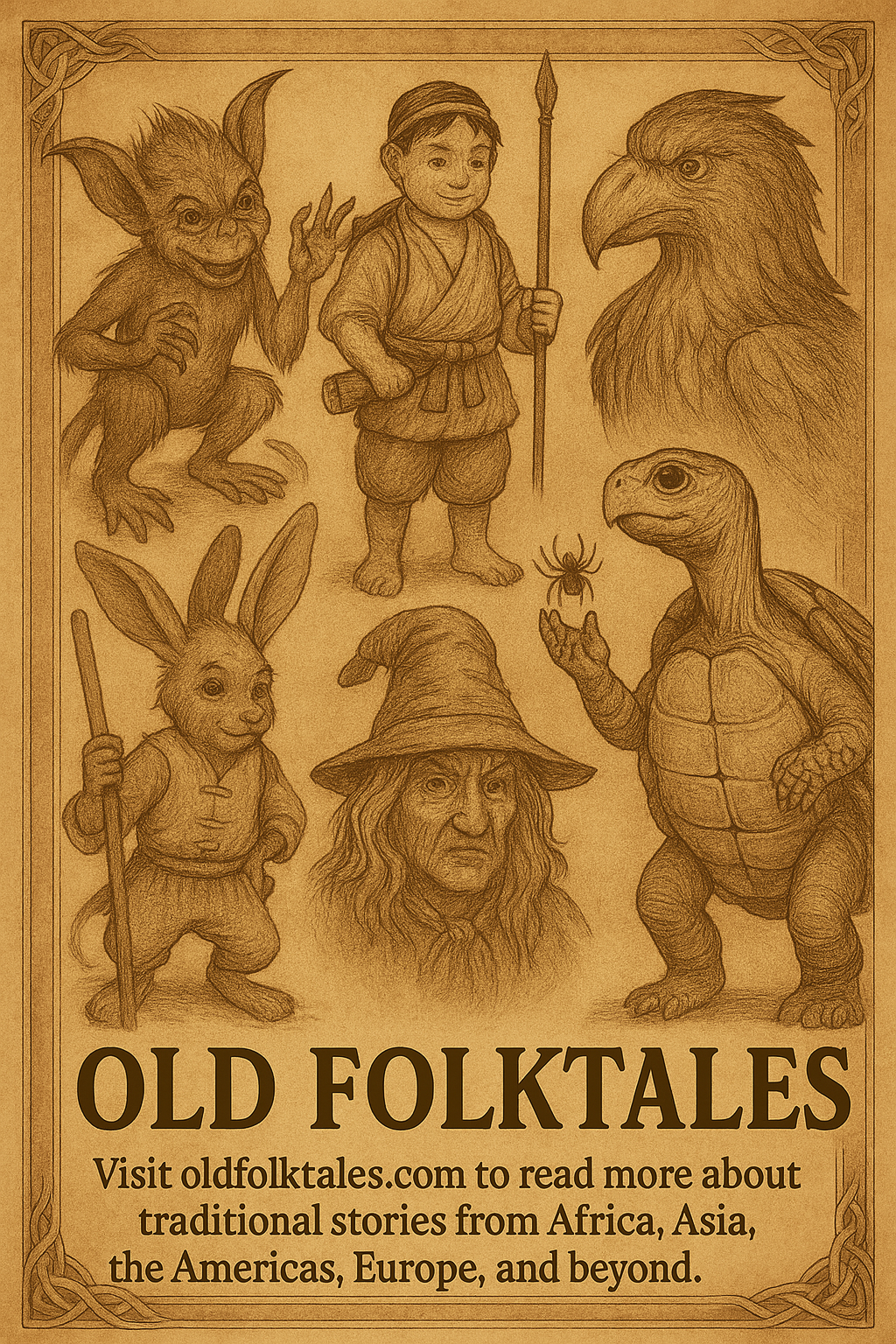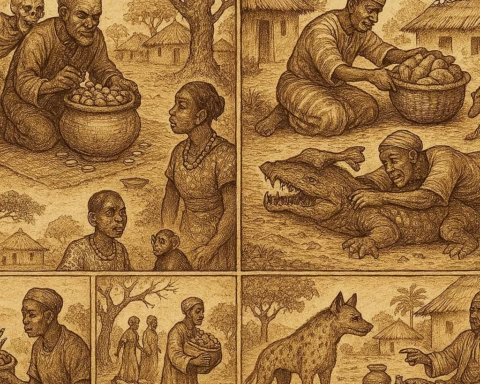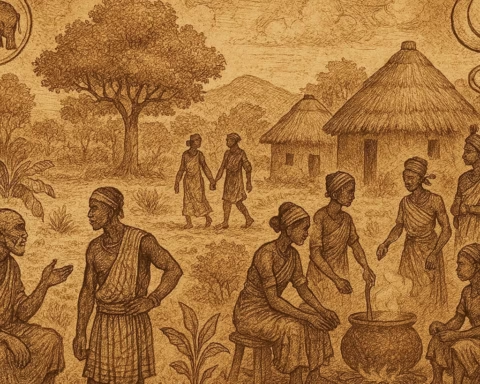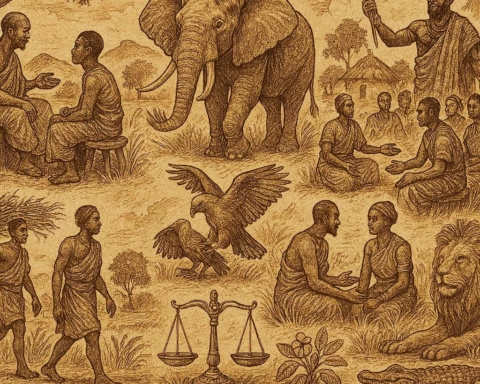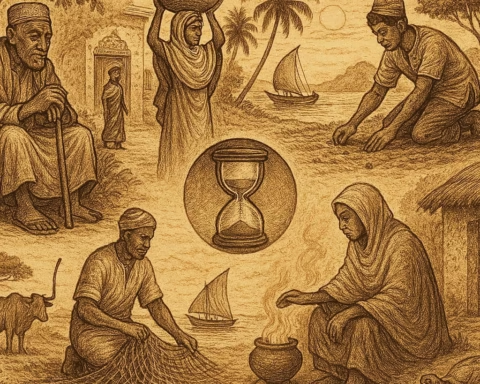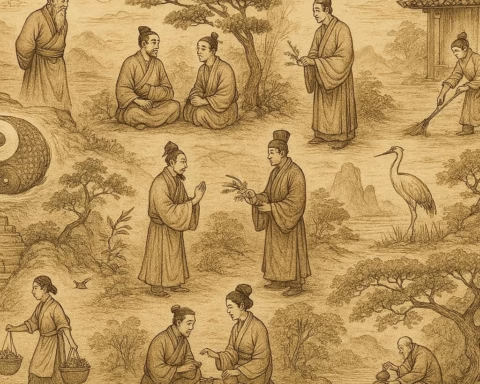The forests of Mount Kurama had always whispered old stories. The monks who meditated there knew the mountain well, but none dared explore its deepest parts. They warned young disciples to never stray past the cedar circle, for that was where the tengu walked. These mountain spirits, known for their red faces and long noses, could be playful or cruel. No one could predict which.
Among the monks was Jiro, a novice who was young, ambitious, and far too sure of himself. Though barely past his first year of training, Jiro believed his chants were stronger, his balance steadier, and his prayers purer than the others. He had never seen a tengu, so he laughed when the elders spoke of them. To him, the stories were just warnings to scare fools.
One crisp morning, Jiro was gathering firewood when he noticed an odd glint among the roots of an old pine tree. Brushing away moss, he uncovered a mask. It was lacquered red with gold lining, and carved into it was a hooked nose and fierce eyes. It could only be a tengu’s mask. He should have run. Instead, he picked it up and smiled.
“I shall be the first monk to bring back a tengu’s mask,” he said. “Let the elders see who is worthy.”
The moment his fingers curled around the mask, the wind shifted. The trees groaned. A crow screamed. Yet Jiro did not stop. He wrapped the mask in his robes and returned to the temple, chest high with pride.
That evening, he wore the mask during meditation as a joke. At first, the other monks chuckled, even the elder smiled slightly. But as Jiro began chanting with the mask still on, the hall fell silent. His voice deepened. The walls trembled. Candles flickered and went out. When he removed the mask, no one laughed. The elder monk stood slowly and ordered him to place the mask back where he found it.
Jiro refused.
That night, while others slept, he crept into the forest with the mask hidden beneath his robes. He wanted to test its power again. In the stillness of the cedar circle, he placed the mask on his face.
Instantly, his vision sharpened. He saw the wind moving through the leaves. His feet no longer touched the ground. With a cry of delight, he leapt into the trees, flying between branches like a bird.
Then came the laughter.
It was high and sharp and came from all directions. Red eyes blinked in the darkness. Dozens of figures stepped forward, each wearing a mask like his. The real tengu had come.
“Little monk,” one of them said, “you wear what is not yours.”
“But I found it,” Jiro replied.
“You stole it.”
“I only wanted to know power.”
“Then you shall learn it.”
The tengu surrounded him. One touched his forehead. Visions swirled. He saw himself wandering the forest for years. His robes tattered. His voice echoing nonsense. He watched monks come and go, his face never aging.
He screamed.
The mask flew from his face and vanished into the wind. When he awoke, it was morning. He stood alone in the cedar circle. No trail led back. No birds sang. And when he called out, no one heard.
The monks searched for him, but he had vanished. The temple elders never spoke of him again. But sometimes, pilgrims reported a figure in red robes watching from the trees. Some said he flew from branch to branch, his face half-covered, his eyes sad.
It is said that the tengu do not forgive pride. And that some lessons are learned only through losing oneself.
Moral Lesson
The story of The Tengu’s Mask and the Vanishing Monk teaches a timeless truth about humility and respect for spiritual traditions. When ambition becomes arrogance, and sacred things are treated as trophies, the consequences can last forever. Jiro’s fate reminds us that true wisdom is not loud or boastful. It listens, learns, and honors what it does not yet understand.
Knowledge Check
- What is the moral of the folktale “The Tengu’s Mask and the Vanishing Monk”?
The story teaches a lesson about humility, showing how pride and disrespect for sacred traditions led Jiro to be lost forever in the forest. - What cultural group does the tale “The Tengu’s Mask and the Vanishing Monk” come from?
This folktale originates from the traditional beliefs and storytelling practices of the Japanese people, specifically tales involving yokai spirits. - Why did Jiro wear the tengu’s mask?
In the story, Jiro wore the mask out of pride and a desire to show off, which led to him angering the tengu spirits. - How does the folktale “The Tengu’s Mask and the Vanishing Monk” explain the behavior of tengu spirits?
The story gives a traditional explanation of tengu as guardians of sacred places who punish arrogance and protect spiritual balance in the mountains. - Is “The Tengu’s Mask and the Vanishing Monk” a ghost story, origin tale, trickster story, or spirit tale?
“The Tengu’s Mask and the Vanishing Monk” is a spirit tale, reflecting the Japanese belief in yokai who influence the natural and spiritual worlds. - Why is the tale “The Tengu’s Mask and the Vanishing Monk” still meaningful to modern readers?
The story continues to resonate because it teaches lasting truths about humility and respect for sacred spaces, reminding us not to let pride lead us astray.
